
views
Accepting Change
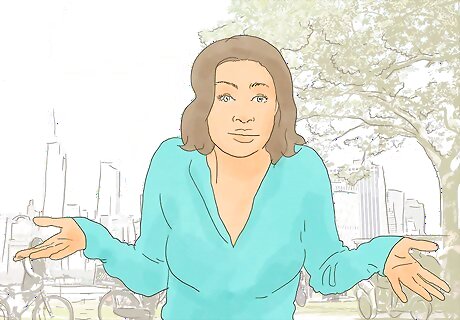
Know that change is constant and part of this world. Things may happen suddenly, gradually, or slowly, but things change. Even the invincible and mighty-looking mountains erode, wither, and become old. On a cosmic level, stars, galaxies, and galactic clusters appear and then dissolve into the nothingness from where they came. Similarly, conditions, life situations, experiences, relationships and people arise, change and disappear from your life, like in a dream. Same people, things or conditions that give you pleasure will give you pain as time passes or when they change and/or disappears from your life. It's because all forms and conditions are fleeting and are bound to the law to impermanence. It can be hard for some people to recognize and accept it, but change, whether we perceive it as good or bad, is part of life. Just realizing and accepting this fact is the primary step in the journey towards mental flexibility.

Look at the bright side. If a particular change makes you uncertain or resistant, then relax and/or take a few breaths and ask yourself questions like, "Is there anything that I can do about it?", "Is this truly in my control?", "Is there a bright side to it?" etc. While being aware of your motive behind opposing the change. For example: suppose your best friend is getting married and you find yourself resisting it because you think you may not get to see your friend a lot. The motive behind this is fear and self-interest. Regardless of your opposition, most likely, this change is going to happen, and there is a possibility that you may end up creating sad mental movies and suffering for yourself and others, if you didn't accept it. When you accept a change or 'what is', you see the bright side and what action to take more clearly. This action is in alignment with universal intelligence because it arises out of non-resistive or non-reactive state of consciousness, rather than reactive and limited conditioned mind. There is always a bright side to any situation. Although, the bright side may not always be visible right away. Your friend getting married can also be seen as a motivation to find someone for yourself too. Right? "Behind every seemingly bad situation lies concealed a deeper good, which reveals itself to you only through inner acceptance of what is" Eckhart Tolle.
If you can't accept a change then accept that you cannot accept. In more direct words, allow the resistive thoughts and emotions that are arising in response to a change or anything at this moment.
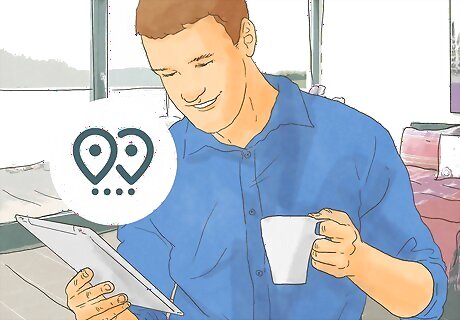
Consider an example. Suppose you had to move to another city for a job and this triggers a variety of “fear of the unknown” thoughts and emotions that say something like: "Where am I going to stay?", "What would I eat?", "How the people would be like?" Etc. These are the 'default' conditioned reactions and thoughts that mind generates, as per its conditioning, which is based on past. It certainly helps to gather information and facts, but you also need to look at the other side of the coin. For example: The new and current cities may have underlying commonalities such as variety of people, restaurants, grocery stores, places to visit, parks, amusements, events and so forth. There is also a possibility that the new city may have idiosyncrasies and places that you may like better than the last one (seeing the bright side). Remember, many times, even you don't know what you may end up liking unless you experiment and try new things. Restaurants - The location and cuisine of the restaurants may be different but that does not mean the food won't be as delicious and nutritious. Friends - Moving to the new city may also be seen as an opportunity to make new friends and meet new people. Population - The number of people in the new city may differ from the last but that does not mean there won't be enough opportunities to meet new people. Unless you moved to a really small town. People. To go deeper, humans can be pretty complex and challenging. For example: different people have different personalities, beliefs, attitude, energy level, wealth, background, identifications, and so on, but that doesn't mean they are not people or human beings. Also, if you look deeply, most people are governed by Ego to a varying degrees, which is impersonal. That is to say, on the surface, the stories, beliefs, forms, background, personality, etc., which are ultimately bundle of thoughts, that the Ego identifies with may seem personal and different but the underlying structure, mechanics and energy are of the Ego that lives on comparison, conflicts, negativity, fear, wanting, resistance, identification with things etc. Yes, we like to stick with things, beliefs, culture, places, people etc. that are 'known' to us because they give us a 'sense of familiarity'. As unknown is dangerous to the mind or Ego. This creates a lot of implicit and explicit biases even before trying out something new or unfamiliar. It's like negating the truth that we may end up liking 'not so familiar' people, places, things etc. With some common sense and minimum of intelligence, you can try a lot of new things and meet new people with little or no risk. Like trying a new cuisine, visiting new places, traveling to unfamiliar places, going to new events, meeting new people, trying new hobbies etc.
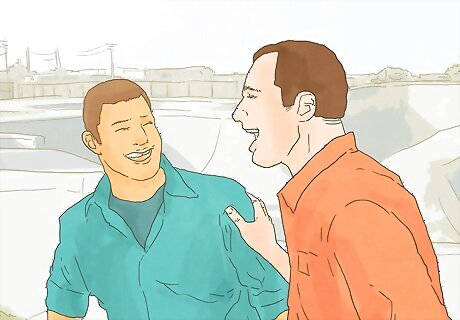
Make it fun and silly. This means taking it easy and making things silly, fun and lighthearted with common sense. Suppose you failed a test then instead of reacting or feeling sad about it, try making the situation fun by sharing with your friends something like "I failed my test, so my father got me a job application for McDonald's" or "My teacher returned my test paper with a McDonald's job application stapled to it". Anything that corresponds with your humor. This is an effective therapy that will help you greatly in the long run. With some common sense, you can laugh at many situations and conditions. Haven't you heard of the cliché phrase, 'Don't take life too seriously'? Making it fun or smiling or laughing about something undesirable or unpleasant that happens is also a form of acceptance. It's because it implies you are not resisting 'what-is' or demanding it to be different. That's when a much greater power arises through you.
Making Effective Changes
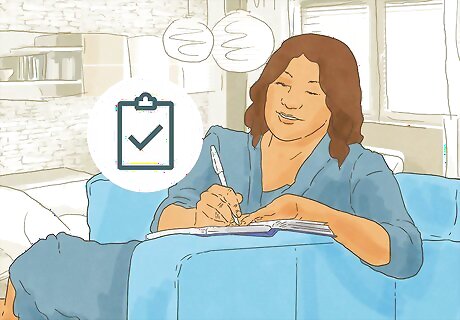
Work on the things that are under your direct influence. You have no control over weather, political situations, wars, pandemics, conflicts, your physical appearance (for a good part), where you come from, people's reactions and so on. Even your automatic conditioned mental reactions and thoughts are not in your control. Read Dissolve the Ego (According to Eckhart Tolle's Teachings) for more depth. So, it doesn't help to worry or try to control them. If you did, you would just suffer. Which will keep the undesirable situation, condition and suffering in place. It's because world is a reflection of your inner state. So, work only on things that are in your direct influence. Direct control points to things which are in our direct influence. For example: making a cup of coffee, studying hard for a test, exercising, grooming, practicing good hygiene, etc. Indirect control points to things which are in your indirect influence, like your grade on a test, taste of coffee, your health, mental-emotional state, etc. 'No control' refers to things that are not in your control in any way, shape, or form—- like someone else's test grade, weather, wars, politics, natural disasters, pandemics etc. So, work only on things that are in your direct control to increase the scope of these things.
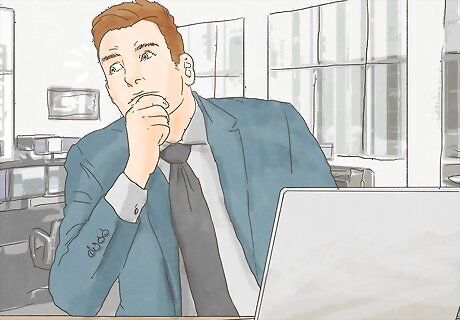
Understand the underlying mechanism behind the paradigms you have. A paradigm is a lens made of mental conditioning through which you see and act on the world. Most individuals see, analyze and judge things on the surface through limited conditioned mind (thinking, memory, beliefs, knowledge etc.), which is based on past, and give little attention to the underlying interconnectedness of all things. It's like tending to fix the symptoms of the problem, rather than becoming aware of the origin, Egoic dysfunction, from where the problems arise. Therefore, people miss out on opportunities to realize the deeper interconnection of all things.
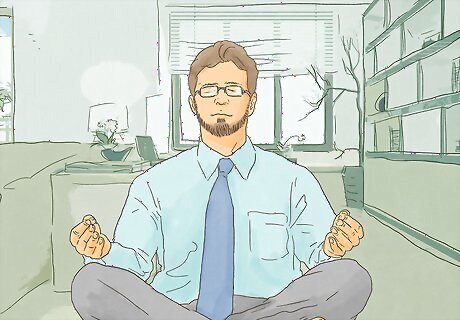
Experiment. After you finish your morning routine (such as brushing teeth, work out, shower, breakfast, etc.), observe the quality of your day. Specifically, your 'state of consciousness' because that's what determines the quality of your actions and responses. On the following day, skip some or all of your morning routine activities and then observe the quality of your day and 'state of consciousness'. You may notice that the quality of your actions on the first day as compared to the second day will, most likely, be higher. This is because when you perform these activities, it helps bring a shift in your consciousness, and the actions that arise out of that shift have a high quality. It's like the origin or 'state of consciousness' from where the actions or words arise is of higher quality. Therefore, in the long run, you don't have to deal with the symptoms of those actions. Note: For the sake of example, we are not taking into consideration your mood, life situation, people you are with, the place you are at etc. which may impact your 'state of consciousness'.

Realize that things are interconnected on an intrinsic level. Here's an example: if you are physically flexible, then there is a higher chance that you are going to be mentally flexible as well and vice versa. This arises naturally because once you integrate the underlying concept of flexibility in one arena, it's easier to see the interconnectedness between other things and apply it in different aspects of your life. Yes, there are people who seem to be “mentally flexible”, yet are not physically flexible and vice versa. This may arise because they have not realized the deeper interconnectedness between different domains of life. Or they are aware of it but just prefer to not work towards physical flexibility. Second example: have you noticed that when you feel frustrated in one aspect of life then, most likely, you feel frustrated in other aspects of your life as well? It's because frustration, which is a form of negativity and mind created, is not out there but is within as an egoic mental-emotional state, even if it's triggered by an external factor or an inner thought. That's how it contaminates and seeps into your actions and words. Doesn't matter how well you compartmentalize it. In other words, your actions and words arise out of a negative mental-emotional state, hence they are low quality and will subsequently create more negative situations. Why not take advantage of this interconnection? Suppose you want to adopt the habit of 'taking things easy', then consciously practice this in all viable aspects of your life. For example: doing your work in an easy going manner, talking to people calmly, reading light and funny content, monitoring your thoughts and reactions, feeling your breath and inner body as much as you can, driving calmly, watching light-hearted or funny shows and/or movies, recondition your mind to make jokes about situations or conditions, pursuing fun hobbies and so on. This will not only accelerate your progress towards mental flexibility by helping you to see how quality of your inner state determine the quality of your actions and external conditions, but will also help you realize the interconnectedness between different aspects of your life. It helps even more to start with a smaller interconnected aspect. For example: If you want to write a book then maybe start with writing articles, blogs, short stories, posts etc. It's because the underlying commonality between these is writing.

Find a healthy balance. A healthy balance between underlying and outlying elements is the most effective. For example: if you consider yourself to be a smart person, but don't have the necessary skill set to express that intelligence, your skill or talent might never be known by others and enhance or improve their lives. Effective balance usually comes after a number of iterations. Since everyone's different, so this number may vary from person to person on the basis of their personality, learning modality, and inherent adaptability. Although it helps to put yourself in the company of effective and successful people, but it's not always a good practice to compare yourself with others, as you may not have gone through the same experiences, situations, have the same conditioning, energy level, luck, upbringing, mental capability, support, willpower, background etc. as them. As people can vary on many levels. However, you can be practical about it. As you will read in the last step.
Change the Paradigms

Be aware. Awareness is the primary agent to dissolve negative beliefs, compulsive and repetitive mental patterns that have been running your life. When you are simply aware, a new dimension of consciousness emerges through you that is infinitely more powerful than thinking or conditioned mind. So simply become aware of your negative, repetitive and self-limiting thoughts and reactions, as they arise. In other words, allow or accept them to be there. This naturally dissolves them without any effort. Its the negativity, emotional inertia or pain within that doesn't let one become adaptive and flexible. It is highly recommended you read Dissolve the Ego (According to Eckhart Tolle's Teachings) for more insight.
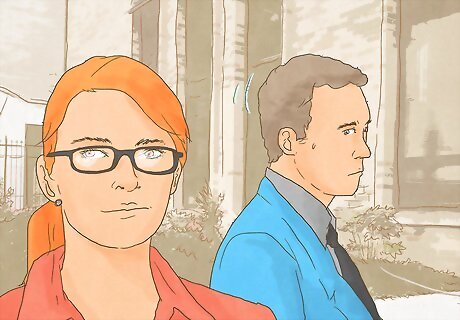
Collect evidence. Suppose you have beliefs, opinions or paradigms, which are ultimately conditioned thoughts and emotions, even if they are based on facts because beliefs or paradigms, most of the time, imply identification with thoughts, that say something like "No one likes me." or "People don't appreciate me." etc. Since many people's minds are evidence-driven, so as a practical measure, go along with it by putting these beliefs to the test and being aware to gather evidence. It's the non-supporting evidence, 'what-is', that can help dissolve the false and self-limiting beliefs or at least replace them with more positive and/or accurate thoughts. There's a possibility that your mind may see what it wants to see, i.e. scotoma, and ignore any evidence that will counter or challenge your beliefs. Due to this you may not be able to see their true validity. So, honesty, open mindedness and a high degree of awareness are needed. Don't just accept or reject what's written in the article, put it to the test.
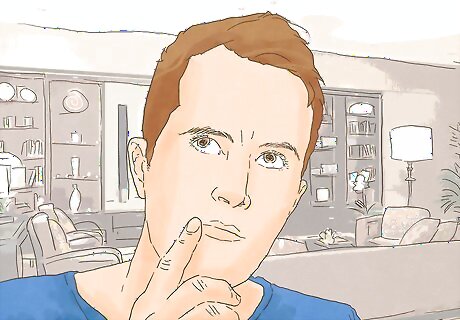
Disidentify from Ego or conditioned mind. Individuals may have different definitions of the word 'ego'—psychological, spiritual, religious, dictionary, and so forth. Thus, you probably may have interpretations of the word 'ego' which differ from others and also change throughout your life. The Ego, in this context, arises when people think they or their interpretation, based on their conditioning and knowledge, which are ultimately bundle of thoughts or words, is superior or inferior to others. These narrow interpretations, opinions or mental positions give people a false sense of "I know". In other words, they think they are in sole possession of the truth and vilify and/or judge and/or label and/or demonize and/or even kill others, if they are not in alignment with their "truth". And what is truth for them? A constellation of words or stories, which are ultimately thoughts, that they identify with or believe in. This also applies to many "spiritual" or "religious" people who judge others through their spiritual or religious beliefs, which, again, are ultimately no more than a bunch of thoughts which they identify with. That's why it is said that Ego is primarily identification with thought forms. Receive Happiness Through Christianity Step 4.jpg Ego needs conflict, enemies and division to re-energize itself and ensure its survival. While the root of conflict and division is within you, not without. This usually manifests externally as so many inconclusive debates, biases, arguments, conflicts, violence, and wars. It's because world is a reflection of your inner state. In this context, dis-identifying from ego means to relinquish all mental positions and just observe or be aware without adding any mental interpretation, which is limited, to anything. That's when true interpretation or action arises from the non-conceptual or unconditioned awareness or consciousness within. As awareness is a new dimension of consciousness that is not part of thinking. We spoke about this earlier. "Can you step back from your own mind and thus understand all things." Tao Te Ching. Be aware as your mental interpretation of the phrase "be aware and allow it to be" could also be ego. As your mind may ask, "So how can I be aware and allow it to be?", and come up with a mental interpretations or concepts on the basis of its conditioning, which is based on past and knowledge. It's because that's all mind knows and is familiar with. Now clever mind has found another concept to identify with. While concepts and thoughts can never see things holistically or be the absolute truth, but at best they can point to it. Truth is beyond any form, concept or words. "Stillness is the language that God speaks, everything else is a bad translation." Rumi. It's okay to use concepts, pointers and thoughts during your journey, but don't get lost or become identified or use them as a crutch, as they are no more than a means to an end or signposts. As by its very nature the thought is limited. "Finger (words) pointing to the moon (non-conceptual intelligence) is not the moon" Buddha. Read Stay Rooted in Being for more depth on this. Looking at concepts or pointers is similar to a dog that is still looking at your hand even after you threw the ball. While you are pointing him to the direction where the ball went.
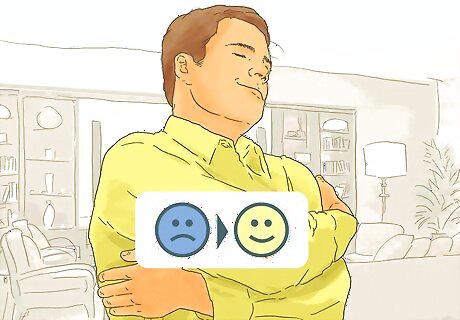
Bring a paradigm shift in your consciousness. Your mind has been continuously conditioned and has unquestionably adopted and identified with the patterns and content of the culture you were born in, which you equate yourself with. For example: Your name, family, background, regional and personal history, religion, ancestry, and so on. Which are ultimately bundle of stories (thoughts), doesn't matter how deeply ingrained, that you, the consciousness, identify with. Another example: failure and rejections are frowned upon in many societies. However, isn't it true that failures experienced by some people became their greatest teacher, drove them deeper and helped them achieve their greatest accomplishments? So, are you certain that failure is something that should be seen as negative or something that should not happen? If you could change or replace your paradigms about failure by not seeing it as negative or something that should not happen, or better disidentify with those thoughts and reactions rather than identifying or believing them, it can become a great teacher and drive you deeper.Reduce Stress with Positive Reframing Step 5.jpg "Failure lies concealed in every success and success in every failure" (Eckhart Tolle). Next time you experience a failure, rejection or fear of failure, ask yourself questions like, "What's the worst that could happen?", "Could it be an opportunity for something new?", "What can I learn from this?" etc. Be truthful to yourself, and importantly have fun by making the situation fun and silly, in accordance with your sense of humor. For example: If you see a hot girl or dude walking by and you want to approach her/him, but you feel fear of rejection, anxiety, butterflies, etc., then first admit that you are being a wimp (making it fun) and/or see the fear as a cue to approach her/him and/or replace it with affirmations. For instance: When fear arises, immediately replace fearful thoughts and emotions with action (approach them) and/or affirmations like "I deserve it", "I am worthy" etc. This helps recondition your mind to see fear as a challenge and/or cue to take action and/or recondition mind's narration around it rather than labeling or misinterpreting the 'fact of the moment' as bad and/or dwelling and/or resisting it. Which keeps the fear, negativity and suffering in place. Which in turn keeps the undesirable situation in place because world is just a reflection of your inner state. We spoke about it earlier. While taking action, changing the narration or interpretation of fear helps lessen its intensity. Why? It's because these practices help shift attention from Egoic mind, emotions or negativity to the Now, or at least replace or counter the pain triggering thoughts with something more accurate and/or positive. Then you will see how suffering becomes your teacher. Similarly, whenever you experience pain-body or negative and painful emotions like anger, loneliness, longing, sorrow etc. use them as a 'cue' or sign to take action and/or become present and/or accept them, instead of dwelling and resisting them. As these emotions are aspects of conditioned mind, which feed the Ego and keep the negativity in place. Note: There needs to be some degree of consciousness or awareness in you to see fear or any other negative emotion as a cue to take action and/or change the narration. Else, you will see or interpret it through the conditioned mind and/or resist it. Which keeps the fear and negativity in place. It's because problems of the mind cannot be solved at the level of mind, because it is an intrinsic part of the dysfunction. Using mind (thinking, reactions, will power, controlling, suppression, etc.) in an attempt to control, dissolve fear or any other form of negativity is no different than a police officer looking for a kidnapper when kidnapper is the police officer. So the harder you "try" to get rid of the pain, more intense it becomes. Read Dissolve the Ego (According to Eckhart Tolle's Teachings) Apply this 'cue' practice in different aspects of your life to deepen it. For example: use the resistive inertial feeling you experience before running, working out, or any challenging task, as a cue to take action or start the routine, instead of dredging up dread. The more you will think, harder it will get because the mind, which is limited and dysfunctional, will quickly come up with a bunch of reasons or excuses (which are ultimately deeply ingrained conditioned thoughts) about why you need to delay and/or can't take action. Plus, compulsive overthinking and resistance feed the mind and add to the mental-emotional inertia which keep you stuck in the same situation, as its reflection. Mind (intellect or thinking and emotions) is not the most intelligent faculty in humans but formless awareness is. In fact mind, when it's not rooted in being, becomes barren, severely dysfunctional and primary cause of suffering. Similarly, use the inertia you feel right before waking up, as a cue to wake up right away, instead of fighting it. It's because fighting and resistance make the negative emotions and unease stronger and keep them in place. "Whatever you resist, persists" Zen saying. Of course, you can apply the same in other aspects of your life too. It may not be easy at first. It's like universe is testing us by making things difficult at first, but when we overcome the initial resistance, not by fighting it but by accepting, taking action or yielding to it, the path becomes smoother. Similar to static friction: Once it is overcome, the going is easier. Taking action and changing the narration about the events or people can be helpful during your journey, depending upon your degree of consciousness. However, the most effective and truest practice to bring an inner shift is to realize that you are not your conditioned thoughts, patterns, blockages, reactions and emotions but the awareness behind them. In other words, simply become aware and accept the thoughts, mental patterns and emotions to be. Or shift or pull attention from thinking and emotions to the space of Now within. This naturally brings an inner shift in you without any effort and helps you realize yourself as still awareness behind the content of your mind and world. As mentioned before, if action or words are required, they arise out of infinitely intelligent formless consciousness or awareness as intuitive responses that may use mind, which is an instrument, if needed. Effort may be necessary until you realize that it is not necessary. Einstein pointed to this intelligence when he said "Scientist's religious feeling takes the form of rapturous amazement at the harmony of natural laws, which reveals an intelligence of such superiority that in comparison with it, all systematic thinking of human being is an utterly insignificant reflection. This feeling is the guiding principle of my work." Becoming aware also implies to accept the thoughts, resistance and feelings that arise in the now. As acceptance helps dissolve the negativity by shifting attention from conditioned mind (thoughts, reactions and emotions) to the “Now”. In the state of true acceptance, you see clearly what action/words, if required, to take/say.

Be practical with awareness. In this context, being practical means that doesn't matter where the motivation or driving energy to learn to say something or take action is coming from, as long as it drives you to do things. Suppose your motivation to go for a run is to see/talk to hot girls/guys at the park. So even though the motivation to run is to 'see the hot girls/guys', it's a practical way to get yourself started with running. It's because mental and/or evolutionary conditioning, patterns and habits have years of momentum behind them. So, fighting them will not help. In fact, fighting makes them stronger. So instead yield or surrender to them to go beyond and/or use them for motivation. Remember the deep wisdom underlying the practice of eastern martial arts: Don't resist the opponent, yield to overcome. There is great strength and wisdom in yielding and non-reaction to what-is. Yielding also implies becoming aware and allowing or accepting 'what is' to be. Which makes way for your true power to shine through. However, it is essential that you are aware or conscious of where the motivation is coming from, so it doesn't become an unconscious process and a crutch. Eventually, the awareness will take you beyond the conditioned mind that seeks motivation and energy through external factors and inner reactions. Then you wouldn't need to use 'watching hot girls', any other external factor or willpower as a crutch to do any task or take action, as right action and/or words will come naturally as intuitive response from infinitely intelligent unconditioned consciousness within. Analogy: Planks of wood/metal may be needed as support to lay down concrete for a building but after the concrete dries, it doesn't need the planks for support. Similarly, motivation through external factors or will may be needed in the beginning or during your life journey. However, be aware that no structure or external factor becomes a crutch. Else you will remain stuck in the walls of repetitive and systematic structural concepts and thoughts. Yes, construction planks may be needed again from time to time to do some maintenance work. In the same way, external structures, concepts, motivation, meditation methods, spiritual books etc. may be needed from time to time to point you to inner depth, until you don't need them. It's because your level of consciousness may not be the same all the time. Second example: Suppose you receive a bad performance review from your boss and as a result you start working harder at your job because you are afraid that you may get fired or demoted. Yes, in this case, fear could be practical as it is motivating you to work harder. However, again, be aware that the motivation is coming from fear (mental-emotional conditioning and not the primordial emotion) or else it will become a crutch, tiresome and a vicious cycle. You don't want to end up in a situation where you constantly need fear as a motivation to work hard. Last example: Comparing yourself with others may give you motivation to do better. For example: looking at successful and/or smart people and feeling motivated. However, it's important to be aware that the motivation is coming from 'comparison', which is a conditioned pattern, or else you will remain stuck at that level. Note: Comparing yourself with others can also demotivate or frustrate you. For example: looking at "successful" people and then hating your life situation. As mentioned above, everyone's different, so experiment to see if you feel motivated by comparison or not and in what cases. Also, it's fine to compare as long as it motivates you to learn, take action, and improve yourself, but stop when it becomes demotivating and painful. Paradox: Comparing with others is an aspect of Ego but as mentioned above that, during your journey, it doesn't matter from what factors (even illogical or nonsense or Egoic) the motivation or drive is coming from, as long as it drives you and you are aware of it. Just being aware is enough as it will take you beyond mind or Egoic structures. As dimension of awareness is not part of thinking i.e. it's non-conceptual and infinitely more intelligent than mind. We spoke about this earlier. "The significant problems we face cannot be solved at the same level of thinking we were at when we created them" (Albert Einstein). What's "same level of thinking"? Level of egoic thoughts and concepts where we are stuck. What's the level beyond? Awareness.















Comments
0 comment